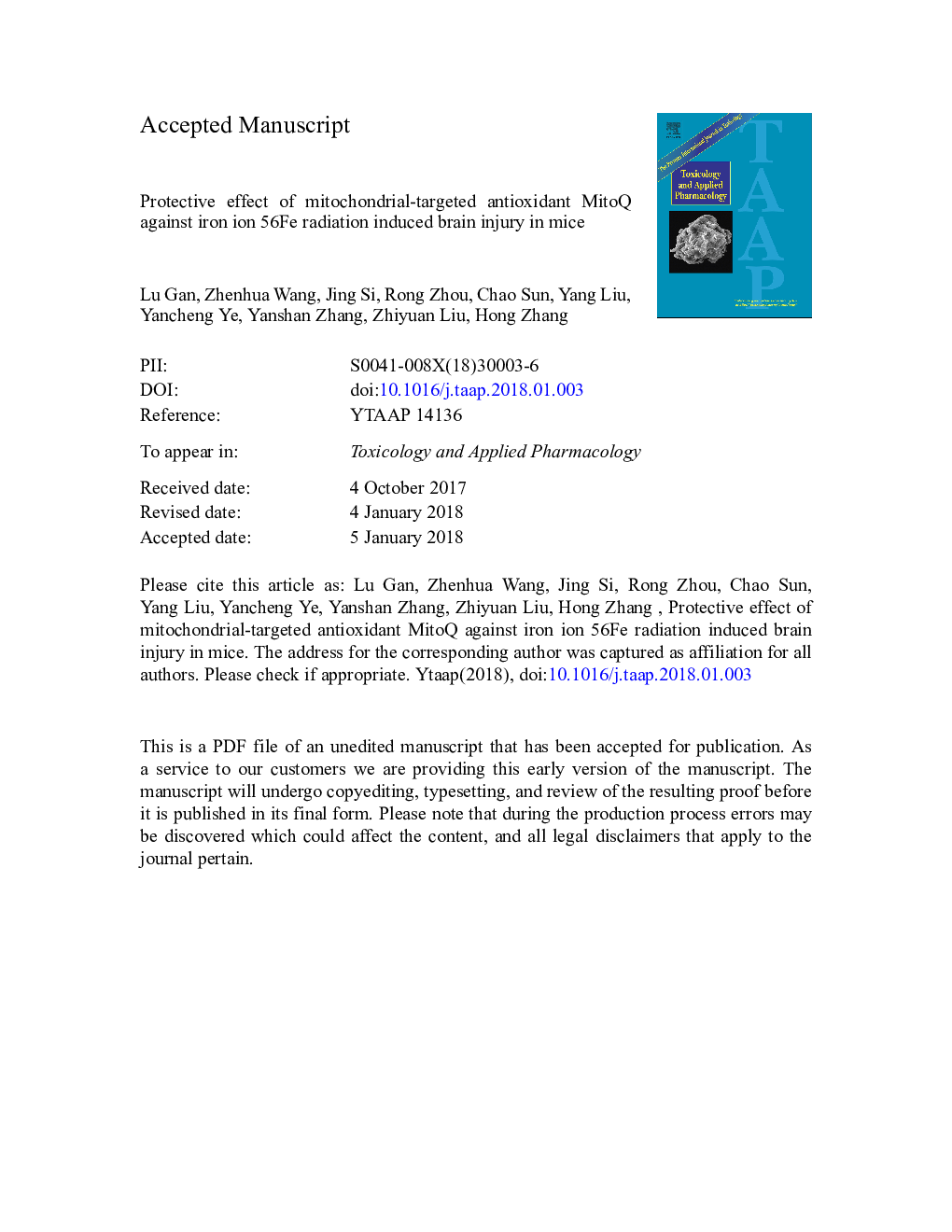| Article ID | Journal | Published Year | Pages | File Type |
|---|---|---|---|---|
| 8538810 | Toxicology and Applied Pharmacology | 2018 | 25 Pages |
Abstract
Exposure to iron ion 56Fe radiation (IR) during space missions poses a significant risk to the central nervous system and radiation exposure is intimately linked to the production of reactive oxygen species (ROS). MitoQ is a mitochondria-targeted antioxidant that has been shown to decrease oxidative damage and lower mitochondrial ROS in a number of animal models. Therefore, the present study aimed to investigate role of the mitochondrial targeted antioxidant MitoQ against 56Fe particle irradiation-induced oxidative damage and mitochondria dysfunction in the mouse brains. Increased ROS levels were observed in mouse brains after IR compared with the control group. Enhanced ROS production leads to disruption of cellular antioxidant defense systems, mitochondrial respiration dysfunction, altered mitochondria dynamics and increased release of cytochrome c (cyto c) from mitochondria into cytosol resulting in apoptotic cell death. MitoQ reduced IR-induced oxidative stress (decreased ROS production and increased SOD, CAT activities) with decreased lipid peroxidation as well as reduced protein and DNA oxidation. MitoQ also protected mitochondrial respiration after IR. In addition, MitoQ increased the expression of mitofusin2 (Mfn2) and optic atrophy gene1 (OPA1), and decreased the expression of dynamic-like protein (Drp1). MitoQ also suppressed mitochondrial DNA damage, cyto c release, and caspase-3 activity in IR-treated mice compared to the control group. These results demonstrate that MitoQ may protect against IR-induced brain injury.
Keywords
Related Topics
Life Sciences
Environmental Science
Health, Toxicology and Mutagenesis
Authors
Lu Gan, Zhenhua Wang, Jing Si, Rong Zhou, Chao Sun, Yang Liu, Yancheng Ye, Yanshan Zhang, Zhiyuan Liu, Hong Zhang,
